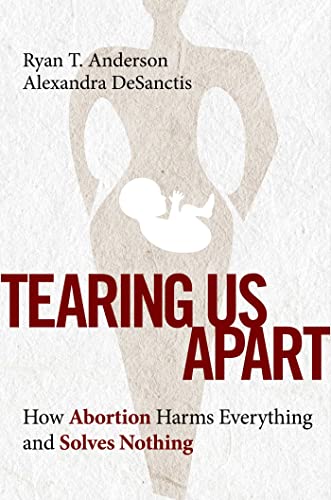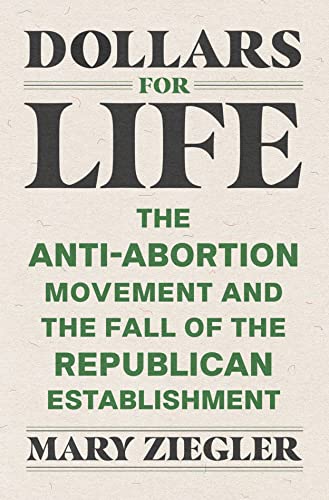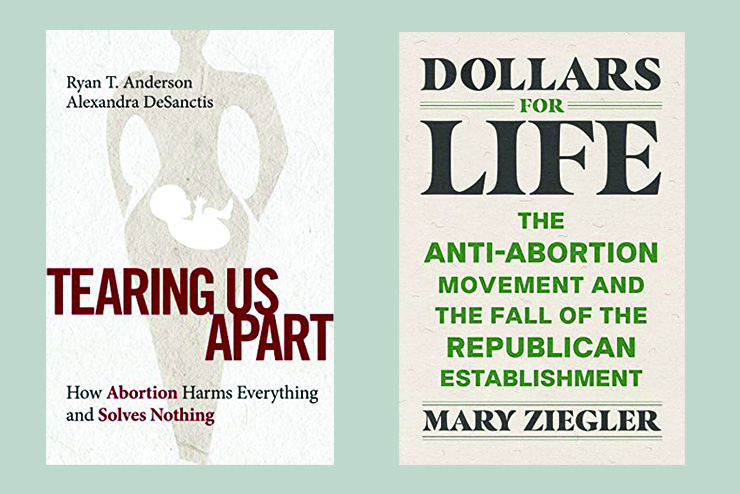
Tearing Us Apart: How Abortion Harms Everything and Solves Nothing, by Ryan T. Anderson and Alexandra DeSanctis (Regnery; 256 pp., $29.99/$18.99 paperback). Books are rarely capable of changing opinions on abortion. This limitation is perhaps because the subject is in moral territory, and rational arguments, no matter how carefully crafted, are less a means of persuading people what is morally good than a method for providing them tools to bolster what they already hold to be so.
The debate over abortion is at bottom about the metaphysical status of the entity in question. Everyone accepts that at some point it becomes a human person. The only thing in dispute is when that happens. So long as we agree that it is a moral atrocity to take the life of an innocent human being, then as soon as we all recognize this is the definition of the object in the womb, we cannot justify taking its life. To do so requires falling into the monstrous utilitarian form of calculation by which a genocide could be justified if we can show that eliminating a group of people produces a greater overall quantity of happiness than that group’s continued existence.
It may well be that even entire books focused on this crucial metaphysical question stand little chance of moving readers from deeply held emotional stances. But Tearing Us Apart spends only a part of one chapter on it. The rest of the book is taken up with matters such as how it might come to pass that more children of one race are aborted than those of another, or that the cultural acceptance of abortion privileges a traditionally male, career-centric worldview. Such observations may be true, but if those entities being destroyed are human persons, these merely sociological facts shrink into insignificance. The murder of unborn children would not be made the slightest bit less evil if it were carefully done so as not to contravene the social justice logic of the anti-racists and the feminists.
Anderson and DeSanctis admit that getting American society to move to their position will require the “dismantle[ing of] every part of the system that perpetuates abortion.” This includes our existing medical establishment, federal and state legal environments on family and marriage, the dominant ideology of mainstream media and popular culture, and the entirety of post-sixties sexual liberation culture. They recognize that is not going to happen anytime soon.
Tearing Us Apart can be productively read by those who are already morally opposed to abortion, but it is unlikely to budge the scales in the debate. That will require more than a book.
(Alexander Riley)

Dollars for Life: The Anti-Abortion Movement and the Fall of the Republican Establishment, by Mary Ziegler (Yale University Press; 445 pp., $35.00/ $24.00 paperback). The GOP has always been of two minds about the right-to-life movement. After all, the Catholics and blue-collar evangelicals were formerly Democrats, and many pro-lifers saw political activity as irrelevant to saving the unborn, and preferred to change hearts through public education. GOP-leaning business groups found right-to-lifers déclassé. Republicans have thus courted anti-abortion voters while secretly hoping that the Supreme Court would deny their appeals. Republican presidents have regularly disappointed the anti-abortion movement with pro-abortion judges.
Knowing they were being betrayed, right-to-lifers responded by successfully changing campaign finance rules in a way that made them indispensable to the Republican Party, according to Mary Ziegler’s careful and engaging scholarship. The change in spending limits on soft money gave individuals and nonprofits overwhelming power over political parties, and put right-to-lifers in the GOP driver’s seat.
Political parties had consolidated control in 1974, a year after Roe v. Wade, when Congress amended the Federal Elections Commission Act as part of post-Watergate reforms. The Act favored parties over individuals in fundraising. “Soft money” contributions to parties were unlimited, unlike contributions to specific candidates.The Republican establishment used this soft money power to spend Pat Buchanan out of his 1992 challenge to George H. W. Bush.
But they were unable to repeat the same feat in 2016 against Donald Trump, because the Supreme Court’s 2010 ruling, Citizens United v. Federal Elections Commission, shifted the balance to activist organizations like right-to-lifers by striking down limits on all independent expenditures by unions, corporations, and other associations.
While Trump won, as president he was more dependent than his predecessors on powerful conservative activist movements that represented positions unpopular with the public at large, Ziegler writes. There is a reason that Trump was the only president to attend the March for Life in person.
Without majority support and beholden to conservative activist groups who controlled the purse strings, Trump was a marginal president who governed from weakness, Ziegler concludes. Like GOP establishment figures in the past, Trump blamed anti-abortion extremism for the 2022 election losses… Roe is mercifully gone, but the politics of abortion continue.
(Betsy Clarke)



Leave a Reply